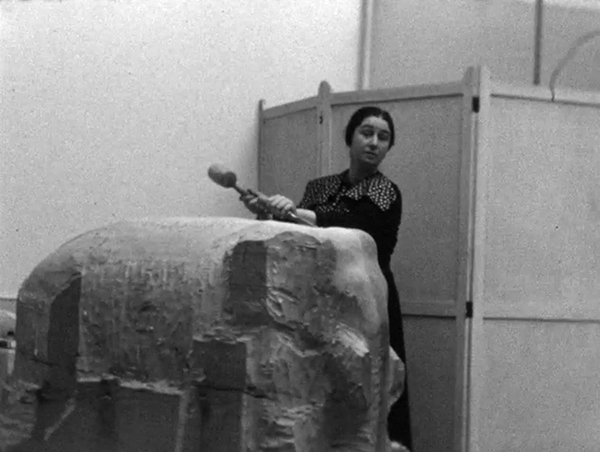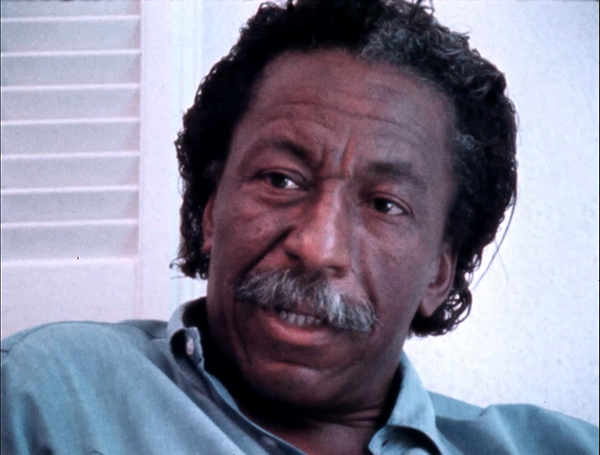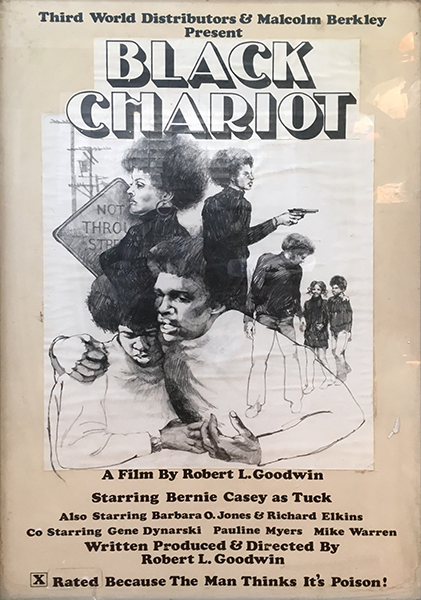Articles about All Categories, tagged
Artist’s Spotlight: Cornelia Chapin
 |
| Cornelia Chapin at work on her prize-winning sculpture Young Elephant. |
For Women’s History Month the NFPF is calling attention to the home movies of Cornelia Van Auken Chapin (1893–1972), preserved through an NFPF grant by the Archives of American Art, a unit of the Smithsonian Institution
Cornelia Chapin was a sculptor who specialized in creating stone and wood sculptures of animals through the direct carving method, which favored sculpting directly from life, without the use of models or casts. Artists in this movement, which rose to prominence after 1915, believed in the “truth of materials”—that a finished work of art should display the inherent properties of the raw material it was sculpted from. Very little period footage of artists engaged in direct carving exists, and during this period there was more documentation of male than female sculptors—these factors make Chapin’s home movies even … Read more
Listening to Gordon Parks
 |
| Gordon Parks looks back on his life's journey in Listen to a Stranger (1973). |
During a month that celebrates the history and accomplishments of African Americans, it’s more than appropriate to highlight Listen to a Stranger: An Interview with Gordon Parks (1973). Preserved through a 2019 NFPF grant by Washington University in St. Louis, this once-rare documentary honors an artist whose work in photography and film were equally groundbreaking.
Gordon Parks (1912–2006) trailblazed with his camera; starting at the Farm Security Administration he became the first African American staff photographer at Life magazine, documenting myriad aspects of American life during the onset of the Civil Rights era. By 1969 he had moved into cinema with The Learning Tree, adapted from his own novel, becoming the first African American to direct a major Hollywood studio feature. His next film was the seminal Blaxploitation … Read more
12 Films to be Preserved through Avant-Garde Masters Grants
 |
| Named to the National Film Registry in 2019, Gunvor Nelson’s My Name is Oona (1969) will be preserved by the Pacific Film Archive. |
UC Berkeley Art Museum and Pacific Film Archive will preserve ten films that were distributed by the Bay Area–based Serious Business Company (SBC), an independent film distribution company founded by Freude (1942–2009), operating from 1972 to 1984. Among them is Gunvor Nelson’s masterpiece My Name is Oona (1969). Named to the National Film Registry in 2019, this portrait of the artist’s daughter uses a repetitive soundtrack and … Read more
Register for a 2021 NFPF Grant by February 26th!
Friday, February 26th marks the registration deadline for the National Film Preservation Foundation’s federally funded grant program, made possible by the Library of Congress Sound Recording and Film Preservation Programs Reauthorization Act of 2016.
The NFPF offers two types of federal cash grants that support the preservation of historically and culturally significant American films. Completed applications will be due Friday, March 26th.
Basic Preservation Grants fund laboratory work to create preservation masters and access copies, and are open to nonprofit and public institutions in the United States that provide public access to their film collections. Please note the awards have increased this year and now range from $1,000 to $20,000.
Matching Grants help experienced institutions undertake larger-scale projects; applicants may request cash stipends of between $20,001 and $75,000 to fund … Read more
47 Orphan Films Saved Through the 2020 NFPF Grants
 |
| Black Chariot (1971) will be preserved by the National Museum of African American History and Culture, Smithsonian Institution with NFPF support. (Courtesy Robert F. Goodwin Estate; photo by Rhea Combs) |
Two of the grant-winners were once thought lost. Black Chariot (1971), a grassroots-financed feature about the Black liberation struggle, was directed by Robert L. Goodwin—one of the few Black screenwriters working in Hollywood at the time—and stars Bernie Casey. “For nearly fifty years Black Chariot has been considered ‘lost,’ and as a result, relegated to a footnote in film scholarship,” writes Jacqueline … Read more
